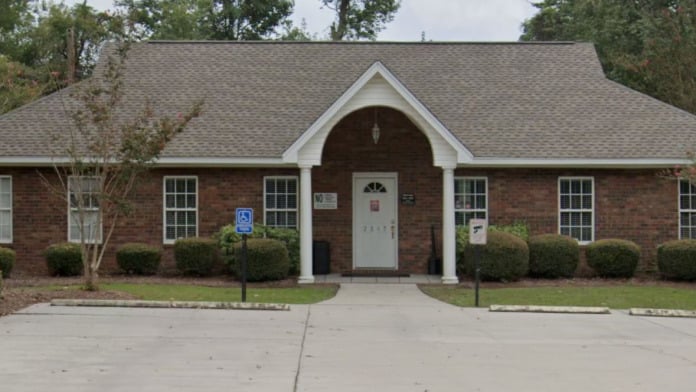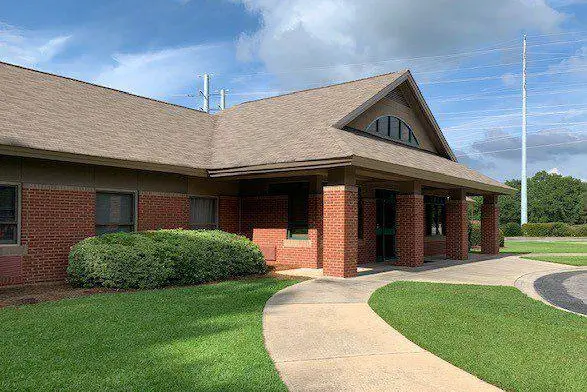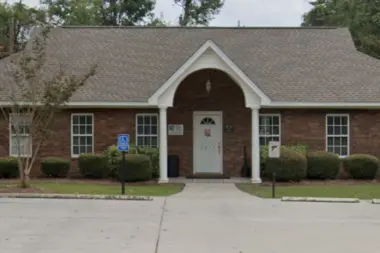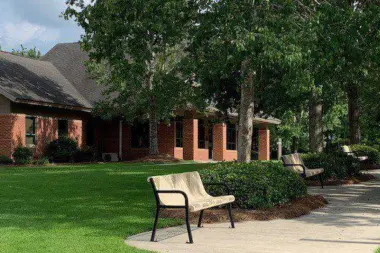About Tri-County Commission on Alcohol and Drug Abuse
They have a highly trained staff who use an innovative and proactive approach to battling substance misuse. This licensed psychiatric hospital hopes to improve behavioral health in schools, businesses and communities. It’s one of the drug and alcohol abuse authorities in the county that’s recognized by the State of South Carolina under the Department of Alcohol and Other Drug Abuse Services.
They have an intensive outpatient program for adults that helps people with moderate to severe substance abuse problems. In this program, you’ll meet with your counselor three times per week for three hours per session.
You’ll engage in individual, group and or family counseling, and they’ll help you develop life skills, prevent relapse and introduce you to resources within your community that can help support you. They say this program is best for patients who have a supportive environment in place.
They offer medication assisted treatment here or MAT. It’s for people whom they deem are eligible to get evidence based medications to resist cravings and treat withdrawals. It also helps you continue or get back to work as soon as possible.
They have an adolescent outpatient treatment program for 10-17 year olds, and if you’re 18 and still in high school or going for your GED, you’re also eligible. You don’t have to be using a substance to get outpatient treatment through this program. They’ll also help you if you’re battling emotional or anger issues or have troublesome behavior at home or in school.
Prevention is a big part of what they do here. They have an information campaign that tries to alert citizens of all ages about the dangers of drugs, alcohol and tobacco use. This program follows Substance Abuse and Mental Health Services Administration guidance on research and development.
Rehab Score
Gallery






Other Forms of Payment
Private insurance refers to any kind of healthcare coverage that isn't from the state or federal government. This includes individual and family plans offered by an employer or purchased from the Insurance Marketplace. Every plan will have different requirements and out of pocket costs so be sure to get the full details before you start treatment.
Self-pay involves paying for treatment out of your own pocket. You can use savings or credit, get a personal loan, or receive help from family and friends to fund your treatment. If you don't have insurance or your insurance plan doesn't cover a specific program, self-pay can help ensure you still get the care you need.
Medicaid is a state based program that helps lower-income individuals and families pay for healthcare. Medicaid covers addiction treatment so those enrolled can use their coverage to pay for rehab. When a program accepts Medicaid the client often pays very little or nothing out of their own pocket.
Medicare is a federal program that provides health insurance for those 65 and older. It also serves people under 65 with chronic and disabling health challenges. To use Medicare for addiction treatment you need to find a program that accepts Medicare and is in network with your plan. Out of pocket costs and preauthorization requirements vary, so always check with your provider.
Military members, veterans, and eligible dependents have access to specific insurance programs that help them get the care they need. TRICARE and VA insurance can help you access low cost or no cost addiction and mental health treatment. Programs that accept military insurance often have targeted treatment focused on the unique challenges military members, veterans, and their families face.
Addiction Treatments
Levels of Care
Outpatient Programs (OP) are for those seeking mental rehab or drug rehab, but who also stay at home every night. The main difference between outpatient treatment (OP) and intensive outpatient treatment (IOP) lies in the amount of hours the patient spends at the facility. Most of the time an outpatient program is designed for someone who has completed an inpatient stay and is looking to continue their growth in recovery. Outpatient is not meant to be the starting point, it is commonly referred to as aftercare.
Clients who have just completed detox, those who are in crisis, and those with a history of relapse often require treatment in an inpatient rehab. These facilities provide high-level supervision, structure, and support, allowing clients to focus on their recovery away from their addiction triggers. Most inpatient treatment programs center upon various forms of psychotherapy, including CBT, DBT, RBT, and motivational interviewing. Clients may also receive recovery-focused life skills training and evidence-based holistic therapies, such as massage.
If your friend or family member is living with a substance abuse issue, a drug intervention in South Carolina can help them accept the treatment they need. A drug intervention is a structured confrontation initiated by family and friends and facilitated by intervention services. The professional interventionist provides education about addiction, enabling, and available treatment options.
Treatments
The goal of treatment for alcoholism is abstinence. Those with poor social support, poor motivation, or psychiatric disorders tend to relapse within a few years of treatment. For these people, success is measured by longer periods of abstinence, reduced use of alcohol, better health, and improved social functioning. Recovery and Maintenance are usually based on 12 step programs and AA meetings.
Choosing a drug rehab in South Carolina helps you overcome drug dependency, learn how to manage cravings, and obtain the tools needed to prevent relapse. This is accomplished through individualized treatment that addresses a full spectrum of physical, social, and emotional needs.
Many of those suffering from addiction also suffer from mental or emotional illnesses like schizophrenia, bipolar disorder, depression, or anxiety disorders. Rehab and other substance abuse facilities treating those with a dual diagnosis or co-occurring disorder administer psychiatric treatment to address the person's mental health issue in addition to drug and alcohol rehabilitation.
A combined mental health and substance abuse rehab has the staff and resources available to handle individuals with both mental health and substance abuse issues. It can be challenging to determine where a specific symptom stems from (a mental health issue or an issue related to substance abuse), so mental health and substance abuse professionals are helpful in detangling symptoms and keeping treatment on track.
Opioid rehabs specialize in supporting those recovering from opioid addiction. They treat those suffering from addiction to illegal opioids like heroin, as well as prescription drugs like oxycodone. These centers typically combine both physical as well as mental and emotional support to help stop addiction. Physical support often includes medical detox and subsequent medical support (including medication), and mental support includes in-depth therapy to address the underlying causes of addiction.
Programs
Adult rehab programs include therapies tailored to each client's specific needs, goals, and recovery progress. They are tailored to the specific challenges adult clients may face, including family and work pressures and commitments. From inpatient and residential treatment to various levels of outpatient services, there are many options available. Some facilities also help adults work through co-occurring conditions, like anxiety, that can accompany addiction.
Clinical Services
In individual therapy, a patient meets one-on-one with a trained psychologist or counselor. Therapy is a pivotal part of effective substance abuse treatment, as it often covers root causes of addiction, including challenges faced by the patient in their social, family, and work/school life.
Research clearly demonstrates that recovery is far more successful and sustainable when loved ones like family members participate in rehab and substance abuse treatment. Genetic factors may be at play when it comes to drug and alcohol addiction, as well as mental health issues. Family dynamics often play a critical role in addiction triggers, and if properly educated, family members can be a strong source of support when it comes to rehabilitation.
Amenities
-
Residential Setting
-
Private Setting
Accreditations

The Joint Commission, formerly known as JCAHO, is a nonprofit organization that accredits rehab organizations and programs. Founded in 1951, the Joint Commision's mission is to improve the quality of patient care and demonstrating the quality of patient care.
Joint Commission Accreditation: Yes
Accreditation Number: 499571
Contact Information
2247 State Park Road
Santee, SC 29142